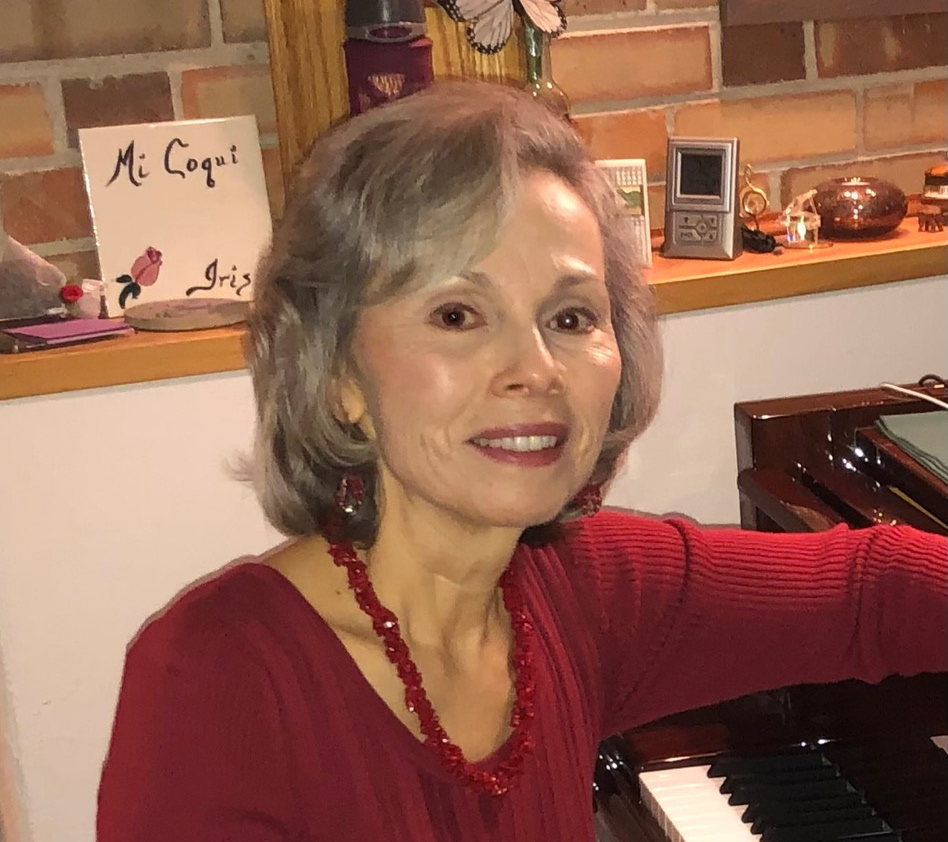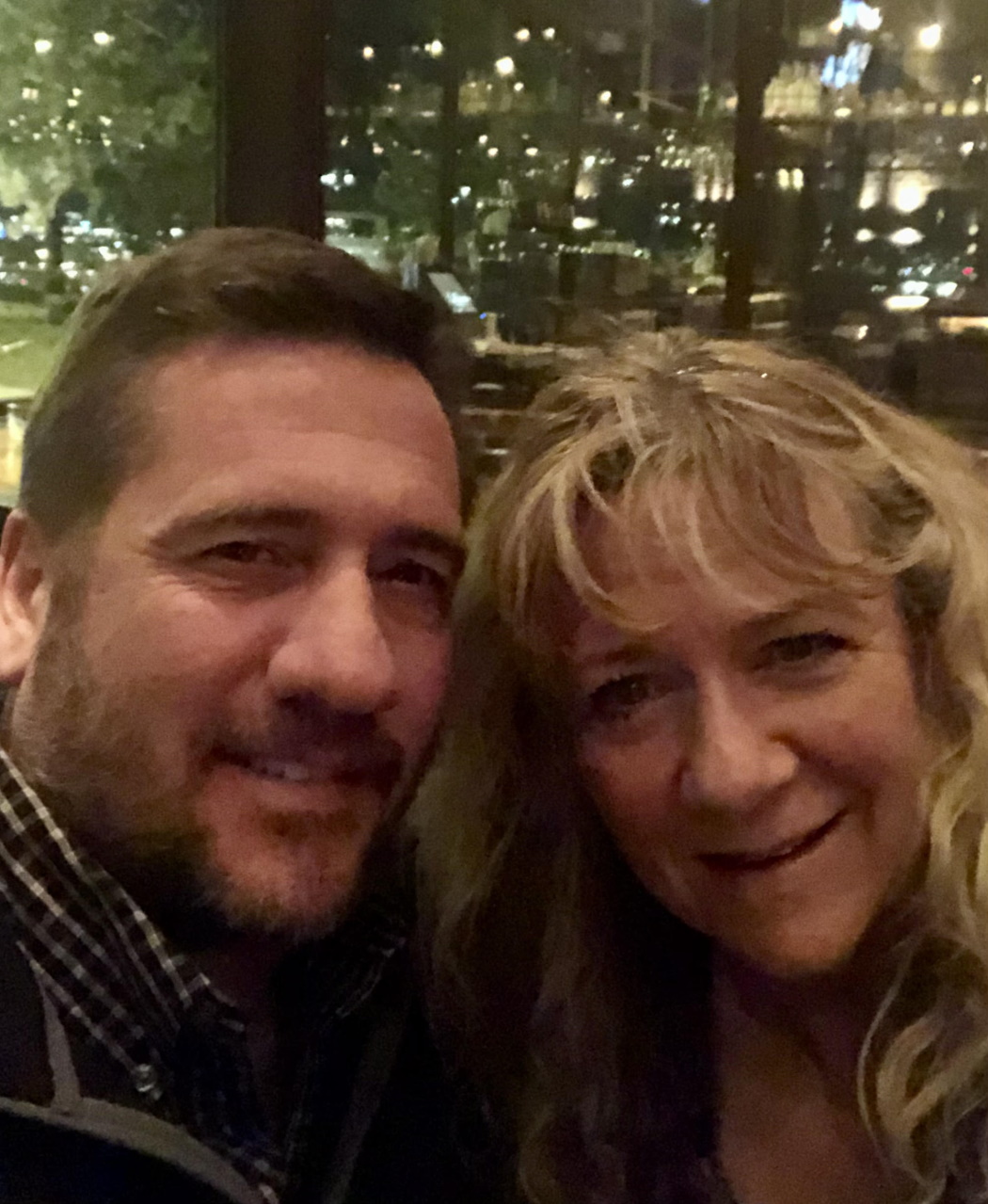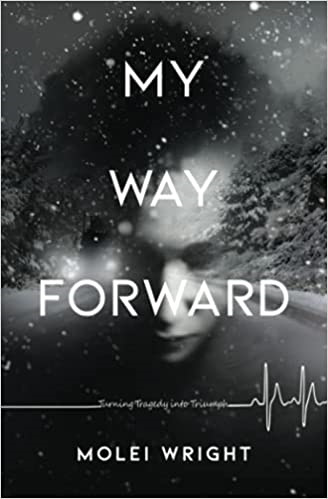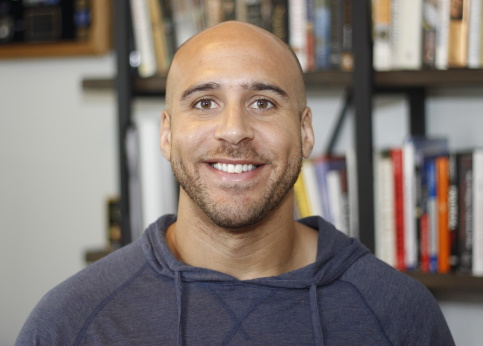
Iris Reyes says there is joy in seeing her husband, Jose, make strides in his recovery.
Care Partner Panel: Strategies to Support Brain Injury Survivors and Yourself
By Eliza Marie Somers
The feeling of being overwhelmed is a common refrain among care partners of traumatic brain injury survivors, however, so is the joy they feel when their loved ones make strides in their recovery.
“There is so much joy when I see how much more Jose can do, and how the quality of his life has improved,” said Iris Reyes, who was a panel member at the Brain Injury Hope Foundation’s February 11, 2022, Survivor Series: Care Partner Panel – Strategies to Support Brain Injury Survivors and Yourself.
“I also found out how much stronger I became as my own person,” continued Iris, whose husband, Jose, is a TBI survivor. “I had a lot of inner strength that I didn’t know was there.”
Care Partner Jeremy Osheim and his significant other, Molei Wright, were involved in a car accident on a snowy road in Colorado. Wright took the brunt of the injuries that day, and with the help of the community at Craig Hospital in Englewood, Colorado, she is recovering. And that is one place where Osheim found joy.
“Just getting to the know the nice community at Craig,” he said. “I’m glad to see Molei become part of this community. It helps to see the humanity in others, who want to see Molei get healthier.”
After her daughter, Lauren, suffered a brain injury, Michelle Coe says she finds solace is living with the miracle that is her daughter’s survival.
Michelle Coe, whose daughter suffered a TBI after a horrific accident, said, “The biggest reward is seeing Lauren get better and seeing her happy. One thing that blows me away is that we are living with this miracle. She is a miracle and has a purpose in this life. Just to be in the vicinity of someone who should be dead is the most remarkable experience — to see her emerge and find purpose and value in life.”
But the journey has not been easy for the care partners, as all the panelists described feelings of being overcome by the responsibilities of being a care partner.
Four years ago, Michael Olson and his wife, LaDonna, took their beloved pet Labrador to their veterinarian’s office to be euthanized. While Lisa waited in the car, she suffered a debilitating stroke.
“She suffered 100 percent paralysis on her right. They had to drill holes in her head to drain blood and relieve the pressure,” explained Michael, who spent days at the hospital and would return home to shower and change.
“Once I got home the panic would set in. Should I put the house on the market? Will she survive?” he explained. “I immediately realized that I had an awful lot to learn. … I was a fish out of water… It was the trauma of going into this without any knowledge of brain injuries.”
While LaDonna was in the hospital, Michael worked from a hospital conference room while learning as much as he could from the doctors, nurses and physical therapists caring for his wife.
“It was emotional for her because her life had changed, and I was trying to be there for her. … Then her doctor said to me, ‘You are going to have to take care of yourself because I need to release my patient to someone in shape.’”
Iris heard the same advice from Jose’s doctors and also felt the weight of being a care partner.
“I panicked when Jose was getting close to coming home. How was I going to care for him when he came home?” she recalled. “He had a team of 14 caregivers, now it was just me. How am I going to be able to be a care partner and cook? … And then I had to incorporate driving to Craig (Hospital) three times a week and continue to work. … It was a matter of juggling his care and my care.”
Taking Care of Yourself
We’ve heard the saying: You have to put on your oxygen mask first before you can help others. Well, each of the panelists agreed that self-care is vital for care partners.
“It’s crucial. Even just five minutes of quiet time,” Iris said. “My self-care has evolved. In the beginning I wasn’t taking care of myself. I was at the hospital. I was able to be part of Jose’s physical therapy. At Swedish Hospital they have a wellness center, so I started going there and working out. It was a great stress reliever.”
Iris keeps up with her wellness plan by practicing yoga, meditating, scheduling massages and chiropractor visits. “I have to be intentional about it,” she explained.
Support groups, family and friends have been important allies especially for Michelle Coe.
“I’ve been fortunate to have lots of family who were key and helped us a lot,” Coe said. “I knew I could trust them to take care of Lauren so we could take breaks. I leaned a lot on our family so I was able to get other things done.”
Coe relies on walks around Washington Park in Denver to help clear her mind and revitalize.
Olson and his family enjoyed riding ATVs on Colorado many trails, but after his wife’s stroke that became impossible UNITL he came up with a solution.
“We decided we would be the ‘figure-outers,’” he said. “We would figure out how to do things.”
Molei Wright published a book about her accident and recovery. It can be purchased at Amazon. https://www.amazon.com/My-Way-Forward-Turning-Tragedy/dp/1639880720
As a figure-outer, Olson got a side-by-side off road vehicle, and now they enjoy riding the trails again. “We get back to some of that normalcy. It’s not just a life of therapy. You got to figure out a way to reincorporate those things in your life.”
Osheim said it was “very, very overwhelming” right after the car accident, but now takes time to snowboard.
“I love snowboarding. I still go by myself. And Molei also discovered some things she loves and enjoys now.”
One of those things Wright has found joy in is writing about her experience, and published a book, “My Way Forward.”
“Joy is a key word. We need to find out what those joys are and to do them. If you don’t, you can get burned out and become resentful. When you care for someone, you have to find the joy along the way and not become a martyr,” Osheim said.
Letting Go
Osheim said it’s easy for care partners to hold onto certain tasks/responsibilities, but it’s crucial to hand them back to the TBI survivor so they are empowered.
“It’s been an honor to recognize Molei’s abilities and to give her back responsibilities. We (care partners) don’t have to own those responsibilities; they don’t have to be ours anymore. … You can hold someone back if you set limits on them. You don’t want to stand in their way of growth.”
Jeremy Osheim says a caregiver must empower their loved one during their recovery and not hold them back with limitations.
BIHF vice president Joanne Cohen said there is a fine line between care partnering and enabling. “We have to give (the survivor) their confidence back,” she said.
As a mother, Iris said she jumped into care partnering with both feet, and that it was tough shift for her too as Jose improved.
“Letting go after having that role was difficult transition,” she said. “I encouraged him to be independent. He was ready, as well. Just letting go of those roles … but there was joy in seeing the more he could do for himself, and how his life improved.”
Spirituality and Caregiving
Faith, hope and love resonated with all the panelists, who continue to lean on their spirituality.
“Spirituality has been huge for us,” said Iris. “Body, mind, spirit has always been part of my journey, and it seemed more urgent to incorporate that. I would not be able to handle (care partnering) if it were not for my spirituality.”
The cycling accident also gave Jose a new view of life.
“It took this experience for me to find the importance in life,” Jose said. “A lot of people with a brain injury try to go back to who they were, but don’t forget the value of this experience. … l also learned that angels are not these light figures with wings. Angels are right here. Iris has taught me that angels are human.”
Coe relied on hope from Day One.
“Early on – to even process this – we realized we needed hope,” Coe said. “My faith gave me hope that there is a purpose in this. … I also realized what would I do without Lauren. If I could just hear her voice again. To have her wrap her arms around me. … Don’t take it for granted. We still have our loved one.”
“I’ll echo Michelle,” Olson said. “Hope keeps that target out in front of you. It has strengthened our faith as well.”
Final Thoughts
Osheim recommends celebrating the small successes and therapy.
“Get in to therapy. Sometimes you do need to talk to someone, to check in with,” he said. “I just wanted to be relentlessly positive because there are a lot of naysayers. … It was so hard for me to take at times.”
Iris suggests supporting your loved one on their journey and encouraging their independence while seeking support networks.
Coe says, “There’s compassion that comes from this experience. Don’t discount what this experience can do for you.”
And Olson reminds care partners, “There is no guidebook on these injuries. Each one has its own DNA.”






What a wonderful and encouraging article. I am so glad everyone gave a very positive testimony. Love conquers adversity.